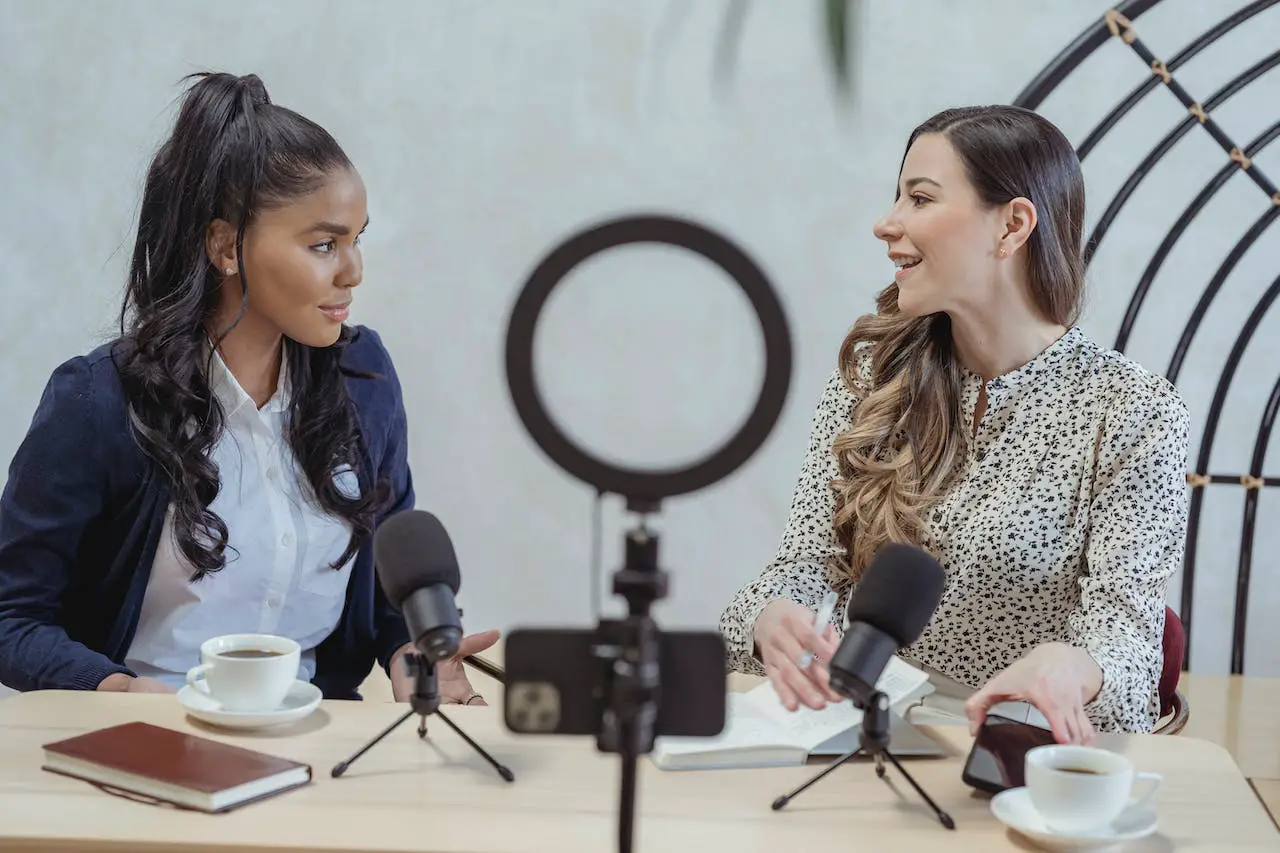The consumption of content through podcasts has soared with their rise as a convenient medium for learning and entertainment. However, this surge in popularity brings into question the effect they have on the listeners’ ability to engage in critical thinking. While podcasts can provide a wealth of knowledge and unique perspectives, they also create an environment where passive listening can overshadow active engagement and analysis. The ease with which one can consume podcast content often means that listeners are more likely to accept information at face value rather than critically evaluating the arguments presented.


Additionally, the format of many podcasts does not always lend itself to the development of critical thinking skills. The intimate and conversational style, though engaging, sometimes lacks the necessary depth and counterpoints for a thorough examination of complex topics. Listeners may be swept along by the narrative or the host’s charisma without stopping to question the content’s accuracy or bias. In an era where podcasts are increasingly utilized for news and educational content, there is a growing concern that the medium could contribute to a less questioning and more credulous audience, which has far-reaching implications for public discourse and society at large.
Key Takeaways
- Podcasts’ ease of consumption may discourage listeners from critically evaluating content.
- The conversational nature of podcasts can lead to acceptance of information without scrutiny.
- Podcasts could contribute to shaping a less critically engaged public.
The Rise of Podcasts
In recent years, podcasts have burgeoned into a cultural phenomenon, in part due to the synergistic relationship with social media and advanced technology. This auditory medium thrives on the internet, with its ease of access allowing users to immerse in content tailored to diverse interests, from true crime to education.
Content Creation and Sharing:
- Podcasters often leverage social media to augment their reach.
- Sharing functionality on these platforms facilitates viral growth.
Technological Advancements:
- Smartphones and apps contribute significantly to podcast consumption.
- They offer a seamless listening experience across various devices.
Algorithms and Engagement:
- Platforms like Spotify and Apple use algorithms to personalize content.
- These algorithms recommend podcasts based on listening patterns, increasing engagement.
Diversity of Content:
- An explosion of topics means podcasts can be highly niche or broad, catering to a spectrum of listeners.
- This specialization is a key growth driver, attracting distinct audience segments.
The industry’s ascent indicates a shift in media consumption habits, with a notable rise in individuals seeking on-demand and portable content. Podcast technology and its integration with other digital platforms have paved the way for this media to become an integral part of daily life for many.
Impact on Critical Thinking
Podcasts, a rapidly growing media format, have been both praised for their convenience and scrutinized for their potential impact on critical thinking skills. With the increasing use of podcasts for dissemination of information, it is crucial to understand how they are affecting the way individuals process and analyze information.
Understanding Critical Thinking
Critical thinking involves the ability to engage in reflective and independent thinking, where the listener actively engages with information and applies various forms of reasoning and analysis. However, podcasts often present a single viewpoint, which may not provide a balanced perspective necessary for fostering these skills.
Dichotomy of Choice and Bias
Podcasts offer a dichotomy of choice, where listeners can either reinforce their pre-existing views and opinions or explore new ones. Although this variety has the potential to expand viewpoints, it can equally reinforce confirmation bias if individuals only consume content that aligns with their beliefs.
Information Quality and Sources
The quality of information and references used in podcasts varies, with some drawing on expertise and others spreading fake news and false information. Listeners must be discerning, as the quality of a podcast often depends on the creator’s commitment to fact-checking and using reliable resources.
The Role of Interactive Learning
Unlike the traditional interactive elements found in a classroom, podcasts rarely allow for real-time questions or conversations. This can limit the engagement with diverse viewpoints and reduce the opportunity for interactive learning, which is critical for developing critical thinking skills in young people.
Effect on Public Discourse
Podcasts shape public discourse through the spreading of ideas, but without active engagement, this new way of learning may lead to less critical analysis in public discussions. Instead of facilitating informed debate, they can contribute to an echo chamber effect.
Critical Analysis in the Information Era
In the era of the internet and social networks, critical analysis is more important than ever. Podcasts should provide context and encourage analyzing and supporting different viewpoints to enhance users’ ability to adapt to new information.
Podcasts and Passive Consumption
The typical podcast format often leads to passive consumption, where listeners absorb information without actively engaging with the content. Without the stimulus for self-reflection or deep thought, the chance for genuine problem-solving and adaptation of new concepts is reduced.
Implications for Education and Work
The prevalence of podcasts poses implications for education and the workplace—areas where critical thinking is an essential soft skill. HR departments and educators should consider how podcasts fit into learning strategies, perhaps emphasizing those that encourage interactive elements and virtual discussions.
Podcasts in the Age of Misinformation
In the age where misinformation can spread rapidly via social media, the role of podcasts becomes even more complex. Listeners may find it difficult to distinguish fiction from reality or to recognize prejudices or lack of rational reasoning presented as factual content.
Fostering Rationality and Reflection
To combat potential downsides, it’s crucial to promote podcasts that encourage rationality and reflection. This might involve recommendations that offer comprehensive vocabularies, backed by well-researched educational content, and outcomes that value informed decisions.
podcasts have the potential to both nurture and hinder critical thinking. It depends greatly on the content, the creators’ intent, and the listeners’ active engagement with what they hear.
The Downfall Of Modern Podcasts
In recent years, the podcasting landscape has shifted, with a proliferation of shows broadening the spectrum of available content. One notable issue is the struggle to secure qualified guests. Podcasts often rely on networks of acquaintances or accessible contacts, leading to a cycle of repeat guests. These guests may hold expertise in one specific area, yet they frequently find themselves commenting on topics well outside their wheelhouse. This can inadvertently spread misinformation and stifle critical thinking among listeners.
The preference for well-known guests can also contribute to diminished originality in discussion. As audiences hear similar views reiterated across various platforms, the opportunity for exposure to diverse perspectives dwindles. While repeat guest appearances may offer depth on certain subjects, they risk creating an echo chamber that fails to challenge the status quo or inspire analytical thought.
Moreover, the format of many modern podcasts, aiming for conversational and entertaining content, may prioritize storytelling over fact-checking and thorough analysis. The inherent need to captivate listeners can occasionally overshadow the pursuit of truth, with entertainment taking precedence over education.
This confluence of factors leads to a podcasting environment where critical thinking is not always nourished as it could be. Instead, it fosters a milieu where the dominant voices remain static and critical analysis is secondary to amusement. As the medium evolves, podcast creators might need to heed these challenges to preserve the integrity of information dissemination and the promotion of critical thought.
Frequently Asked Questions
Podcasts, while highly accessible and informative, may inadvertently contribute to the erosion of critical thinking skills by offering a passive listening experience. This section addresses common concerns regarding this impact on analytical abilities.
What factors contribute to the decline of critical thinking due to podcasts?
A key issue is that podcasts often provide content in a one-sided manner, which might prevent listeners from engaging in the active analysis and consideration of alternative perspectives.
How might excessive podcast consumption lead to a reduction in analytical skills?
The sheer volume of podcasts can overwhelm listeners, leading them to accept information at face value instead of questioning and examining the arguments presented.
What are the drawbacks of relying entirely on podcasts for information and opinion?
Sole dependence on podcasts for insight can result in a lack of exposure to diverse viewpoints, critical debates, and in-depth research that are essential for informed opinions and decisions.
In what ways can podcasts create echo chambers that affect listeners’ critical reflection?
Podcasts often cater to specific interests or viewpoints, which may reinforce preexisting beliefs and limit exposure to differing opinions, restricting critical thought and reflection.
How can one balance podcast listening with other forms of learning to maintain sharp critical thinking?
It involves integrating other educational activities such as reading, engaging in discussions, and researching topics more deeply to complement and contrast what is learned through podcasts.
Are there any statistics that show a correlation between podcast popularity and critical thinking abilities in the general population?
Currently, there is no direct statistical evidence linking podcast popularity to a decline in critical thinking, but the topic remains an area for future study as the medium continues to grow.





